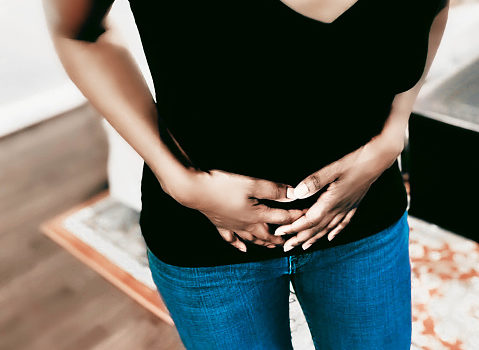
When you have a bloated tummy, it’s normal to think the cause might be related to a digestive issue. However, there’s another illness that can have your stomach feeling full or looking bigger than usual - fibroids.
These abnormal but non-cancerous growths grow in the uterus and can vary in size. Once present, fibroids can really do a number on a woman’s quality of life so it’s a good idea to know what you should be looking for.
Why African American Women Should Be Concerned
According to the statistics that have been gathered over time, African American women are up to three times more likely than other ethnicities to develop fibroids. There is also evidence that Black women start dealing with fibroids from a much younger age.
As they get older, the estimates show that the prevalence of fibroids jumps from 25% at the age of 25 to 80% at 50 years old.
On top of all of that, doctors have confirmed that African American women usually have more severe symptoms and may be recommended more drastic treatment measures such as surgery to cope with their fibroids.
What Causes Fibroids?
Even though uterine fibroids have affected millions of women over the years, physicians have not yet identified the actual cause.
There are, however, a few possible risk factors. Aside from being African American, other factors include a genetic link, chronic stress, a poor diet, environmental stressors, a hormonal imbalance, being pregnant, and low levels of Vitamin D.
Typical Symptoms of Fibroids
Persons who have uterine fibroids may experience varying symptoms as these are determined by the type of fibroid, their size, and how many there are. The three types of fibroids are subserosal fibroids, pedunculated fibroids, and submucosal fibroids.
Those first two typically form on the outside of the uterus but can look different. Submucosal fibroids are less common and usually grow within the middle muscle of the uterus.
If you have fibroids, you may notice any or all of the following symptoms:
- Heavy bleeding before or during your menses, with the presence of blood clots
- Consistent pain in the pelvis or lower back
- Increased menstrual cramps
- A general increase in urination
- Pain during sexual intercourse
- Longer menses
- Swelling in the stomach
- Feeling pressure or fullness in the stomach
The presence of these symptoms is a good sign that a pelvic exam from your doctor is in order. If that exam confirms the presence of fibroids, there are different ways that the condition might be addressed. After determining the size and location of your fibroids through an ultrasound or pelvic MRI, you may be given medications that will regulate your hormone levels and shrink the fibroids.
In some cases, you may need surgery known as a myomectomy to remove the growths. Under extreme circumstances, your doctor may also recommend a hysterectomy.
Tips For Coping With Fibroids
If you’ve been diagnosed with fibroids, it’s important to stick to the medical regimen that you’ve been given. Additionally, health experts recommend exercising regularly, quitting your smoking habit, and keeping other health issues like high blood pressure under control.
You should also avoid highly processed foods, alcohol, caffeine, and dairy products that are high in fat. It’s best to add a lot of fresh fruits and vegetables to your diet. When it comes to supplements, consult your doctor as not all of them may be right for you.
Uterine fibroids affect many African American women but a regularly bloated tummy might be the first symptom that you notice. While a large percentage of women ignore it, that only gives the fibroids more time to grow and for the condition to get worse. You should always check in with your doctor whenever things deviate from what you’re used to.








